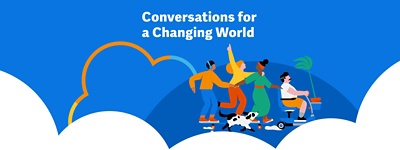Along those same lines, company leaders can do more to increase belonging, diversity, and inclusion within their companies and advocate for change externally.
“Too many people are denied opportunities,” Nair said. “We are going to have to further break down barriers and create opportunities in our workplaces, our supply and distribution chains, and in society at large.”
The Opportunity to Prioritize Mental Health and Wellbeing
Among the biggest opportunities for change is putting the health and wellbeing of people at the center of board discussions. Recent research revealedone out of five peoplewill experience a mental illness. And employees have become more comfortabletalking about their mental healthand wellbeing at work.
“The pandemic has forced leaders to embrace these shifts, to put people at the heart of everything they're doing, and to try and begin to find answers to some of these complex changes that are going on in the world,” Nair said. “The opportunity for us is that the big conversations about people and what affects people is at the heart of all business strategy.”
The Opportunity to Empower Employees With a Future-Fit Skill Set
Organizations are adapting to rapidly evolving ways of working, and as a result, reskilling and upskilling have become a necessity. Unilever, for example, has invested in tools that support employees in learning a future-fit skill set aligned with the employee’s purpose and the job they desire.
“I think the best thing we teach our people is learning agility,” Nair said. “One of the things we've done to help people thrive in this world that's continuously changing, where the half-life of a skill is two-and-a-half years, is by supporting them to identify their purpose.”
The Opportunity to Become More Human Through Technology
Companies that have embraced and invested in technologies enhancing the employee experience are more prepared for recruiting talent in the current landscape. For example, by partnering with Workday to help with digitization, Unilever has a more accessible and visible view of talent data, enabling the company’s talent and succession plan to be much more robust, Nair said.
“So I do feel that we've got to get more digital in nature, allowing us to become more human,” she said. “And I'm a passionate believer that no company can do this alone. We need partners like Workday and others to help us on this journey.”
改造的机会,重新定义,重新激励
The current landscape is showing that the new normal is anything but, highlighting how traditional models of work are not right for the twenty-first century. CHROs and their organizations can embrace the moment for reinventing, reimagining, and reenergizing the workplace for the new reality.
“So let's not miss this moment,” Nair said. “Let's reimagine things. Let's pioneer new things. Let's make a heck of a lot of mistakes. Let's try new models. Let's experiment. ... So this is the moment to do all of that. And let's hold hands as a community when we experiment together. We can share our learnings in real time and together create a better world that's good for everyone.”
Interested in watching this conversation or hearing from more change makers and leaders? Log in or register to watch full sessions on demand fromConversations for a Changing World.











